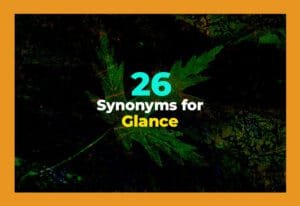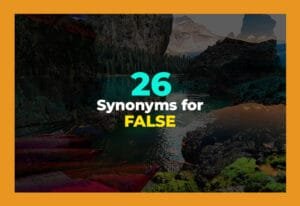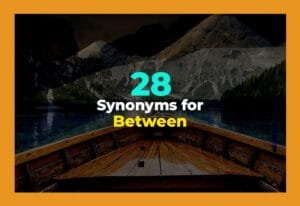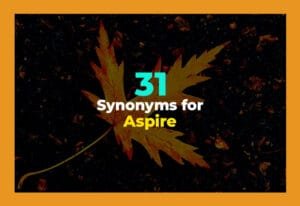You know when you want to be very clear and exact about something? That's when you need a good word like specific. But sometimes, just saying "specific" gets boring, right? Let's find fun and easy words to say the same thing! These words help you explain things better in everyday talks or writing. Ready to sound super smart and clear? Let's jump in and explore some cool synonyms for specific!
1. Precise
Precise means being very exact and clear about something. When you want to give details without confusion, use precise. For example, if you say, "The meeting starts at 3:15 PM sharp," you are being precise. It helps others know exactly what you mean. Saying "precise" is like saying "no mistakes in the details." It makes your message easy to understand, like giving a perfect map to a treasure.
2. Particular
Particular is about one clear choice or detail out of many. If you want to talk about a certain day or one exact item in a list, you say "particular." For example, "I want the blue shirt, not the red one," shows you mean a particular shirt. This word helps when you want to focus on just one thing instead of everything. It is great for pointing out what really matters.
3. Definite
Definite means sure and clear without any doubt. If you have a plan that won't change, it is definite. For example, saying, "Our trip will start on Monday," is a definite plan. It tells people there is no confusion or guesswork. Using definite helps you sound confident and serious about your choice or idea. It's like saying, "This is the truth, for sure!"
4. Clear
Clear means easy to understand and not confusing. When you give clear instructions, people know exactly what to do. For example, "Please meet me at the big red door," is a clear instruction. It helps avoid mistakes and problems. Saying clear means you want things to be simple and obvious. Everyone likes clear messages because they don't waste time guessing.
5. Exact
Exact means perfectly correct or right. When something matches the truth or plan, it is exact. For example, "The temperature is 25 degrees Celsius," shows an exact number. Being exact is good when details matter a lot, like measuring ingredients for a recipe. It stops mistakes and helps things turn out just right. You use exact to get the truth or fact without any changes.
6. Detailed
Detailed means giving many small facts or parts about something. When you explain something with details, people understand better. For example, "The report had detailed steps to fix the problem," means it gave full information. Detailed is good when you want to tell everything clearly and not leave anything out. It's like showing every piece of a puzzle so no one is confused.
7. Explicit
Explicit means saying something very clearly without leaving anything to guess. If instructions are explicit, you know exactly what to do. For example, "Do not open the box until Monday," is an explicit rule. Using explicit words helps avoid mistakes because there is no room for doubt. It is like a clear rule that everyone must follow exactly.
8. Certain
Certain means sure about something and having no doubt. When you feel confident about a fact or choice, you say you are certain. For example, "I am certain the store closes at 8 PM," shows you know for sure. Being certain helps you make decisions without worry. It is a strong feeling of knowing the truth for real.
9. Accurate
Accurate means correct and free from mistakes. When data or information is accurate, it shows the truth well. For example, "The map gave an accurate distance between two cities," means it was right. Being accurate is very important for science, school, and work because mistakes can cause problems. Saying accurate means you trust the facts completely.
10. Explicit
Explicit means something is very clear and easy to understand. For example, "The instructions said, 'Do not touch the painting,'" is explicit. It leaves no room for confusion or guessing. Being explicit means everything is said openly and plainly. This helps people follow rules or directions without any problems. It's a strong way to be very clear.
11. Particularized
Particularized means made to focus on one special thing. When you talk about a topic with many small parts, particularized shows you pick one part clearly. For example, "The study was particularized to urban areas only," means it only looked at cities. This word helps when you want to show exactly which part you mean. It is useful in detailed talks or reports.
12. Specialized
Specialized means focused on one skill or area only. If someone is specialized, they are experts in one thing. For example, "She is a specialized doctor for kids' teeth," means she only works with children's teeth. Using specialized helps show unique knowledge or skills. It makes your message clear when you want to talk about one narrow topic or job.
13. Unique
Unique means one of a kind, unlike anything else. When something is unique, it is very special and different. For example, "That painting is unique because it glows in the dark." Saying unique means you want to show something is rare or not like the others. It helps make things stand out and be important in a clear way.
14. Distinct
Distinct means clearly different or separate from others. If you say something has a distinct color or shape, it means you can see it clearly from others. For example, "The bird has a distinct red patch on its wings," means it is easy to spot. Using distinct helps people know exactly which one you mean because it stands out.
15. Concrete
Concrete means real and clear, not just ideas or guesses. When you give a concrete example, it shows something real to understand better. For example, "A concrete example is a red apple when talking about fruit." Concrete helps people see or feel what you mean. It makes your message strong and easy to believe.
16. Explicit
Explicit means very clear and direct with no hidden meaning. For example, "The teacher gave explicit instructions to study chapters 1 to 3," means there is no doubt what to do. Using explicit words helps avoid confusion and mistakes. It makes rules and messages easy to follow. You use it when you want to be very clear and honest.
17. Certain
Certain means sure and without any doubt. If you say, "I am certain it will rain tomorrow," you believe it will happen for sure. Being certain helps you trust your ideas or information. It is good when you want to sound confident and sure about facts. People feel safe when someone talks with certainty.
18. Definite
Definite means fixed and clear with no changes. When plans or facts are definite, they won't change later. For example, "The party starts at 6 PM definite, not later." Definite makes things easy to plan and trust. You use it to show something is real and will happen just as said.
19. Explicit
Explicit means very clear and detailed, leaving no doubt. For example, "The rules are explicit about not using phones in class." Using explicit makes instructions easy to understand and follow. It helps stop mistakes because everything is said openly. People like explicit rules because they know exactly what is expected.
20. Exact
Exact means perfectly right and not a little different. When you measure or say something exact, it is the real number or fact. For example, "The exact time of arrival is 2:30 PM." Exact helps stop confusion and makes things correct. You use exact when every little detail matters a lot.
21. Clear
Clear means easy to see, hear, or understand. When you explain something clear, everyone can get it quickly. For example, "Her explanation was clear and easy to follow." Clear helps make talks or writing simple and friendly. It is good when you want no confusion at all.
22. Detailed
Detailed means full of small facts or parts about something. When you give detailed info, people understand better. For example, "The book had detailed descriptions of the places." Detailed helps you show everything needed to know. It is good for stories, reports, or lessons.
23. Definite
Definite means sure and not changing. When you say, "We have a definite plan," you mean it will happen. Definite helps people trust your words. It is good when you want to sound sure and clear.
24. Concrete
Concrete means real and true, not guess or idea. For example, "Give a concrete example to explain better." Concrete helps people understand real things. It is strong and clear.
25. Explicit
Explicit means very clear with no doubt. For example, "The rules are explicit and easy to follow." Explicit helps avoid confusion. It is good for clear instructions.
26. Accurate
Accurate means correct and without mistake. For example, "The accurate answer won the prize." Accurate helps make sure facts are right. It is important for truth.
27. Certain
Certain means sure and confident. For example, "I am certain about my decision." Certain helps show trust in facts. It is strong and clear.
28. Particular
Particular means one special or exact thing. For example, "I like this particular book." Particular helps focus on one thing clearly. It is helpful for choice.
29. Specialized
Specialized means made for one special skill or thing. For example, "She is a specialized artist." Specialized shows focus on one job or skill. It is unique.
30. Unique
Unique means one of a kind and very special. For example, "That flower is unique in the garden." Unique helps show rare and special things. It is easy to notice.
31. Distinct
Distinct means clearly different from others. For example, "The sound is distinct and easy to hear." Distinct helps people know exactly what you mean. It stands out.
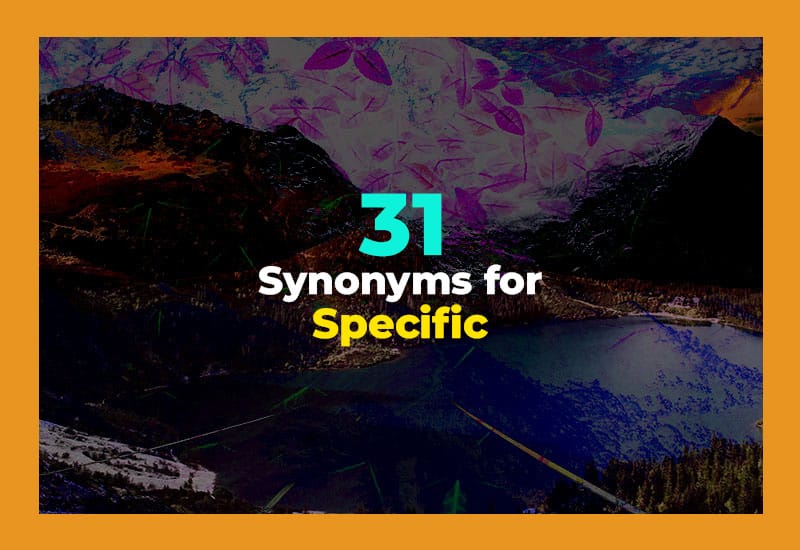
I hope you enjoyed this list of words you can use instead of specific. Using these words will make your speaking and writing more fun and easy to understand. Now, you can pick the perfect word whenever you want to be clear or exact. Keep practicing these words, and soon, you will sound like a pro at explaining things clearly!




